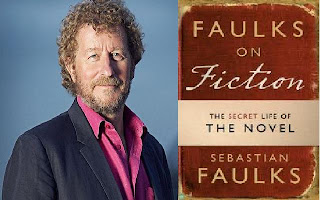

Faulks commences with Mr. Darcy – one of the most well known and beloved characters of all time. In the early 19th century, the concept of the lover was either that of a rake or of respectable husband material; Jane Austen fused elements of both character types in Mr. Darcy. Darcy is a respectable gentleman and will make a good husband, but he has character flaws that he must work out first. Darcy is rich, poised, good looking and snobby – all which recommend him as a husband: love is a means of social advancement. Darcy is, however, rude; a trait which distances him from many of the characters in Pride and Prejudice but gives him an intellectual connection point with Elizabeth. Like the medieval concept of courtly love, the love expected in Pride and Prejudice is worship and devotion. In the first half of the story, Darcy’s pride prevents him from truly understanding this worship and devotion that true love demands of him. In the first half of the book, the main passion between Elizabeth and Darcy is a sort of white-hot anger. Love is a means of change and betterment that is fully realized in marriage; the lover is one who may not be perfect, but who can change.

Emily Bronte’s Wuthering Heights introduces a troubling image of the lover. Heathcliff is ruled by his passionate love for Catherine. He shares Darcy’s snobbery and selfishness, but unlike Darcy never changes and has no restraint. Heathcliff never realizes that the worship and devotion he has toward Catherine needs to be translated into service; his love remains nothing but an overwhelming passion. Heathcliff’s love of Catherine goes beyond passion or lust, however, it is some sort of destructive idolatry. Heathcliff is unable to live without possessing Catherine’s soul. This idolatry destroys not only his life, but the lives of those around him.
Tess of the D’Urbervilles presents us with a new concept of the lover: an innocent and naïve farm-girl. Despite her innocence and simplicity, she commands the attention of all the men she passes. Tess encounters love for the first time at a country dance where she meets Angel Clare, but feels slighted when he leaves without dancing with her. Her naïveté is exploited by her employer Alec D’Uberville who rapes her. Tess begins a relationship with Alec, though he never marries her. She eventually returns home and gives birth to a son who dies after a few weeks. She is then reunited with Angel and they fall in love and are married; Tess did not tell Angel of her past until their wedding night, however, and in shock he deserts her. Tess eventually becomes Alec’s mistress. At the end of the book Tess murders Alec and runs off with Angel only to be caught and executed for her crime. In Tess of the D’Ubervilles the destructive power of love seen in Wuthering Heights is seen again. This novel also involves a good deal of sexual activity; strangely, this sexual activity seems to be divorced from love. In Tess, we see the lover as someone able to command the affection and lust of others, but also someone condemned to the problems that her love and physical attributes bring.


The complexities of sex and love are seen more clearly in Lawrence’s Lady Chatterley’s Lover. Lady Chatterley’s (Connie) disabled husband gives her permission to have a lover. After declining the suggestion for a time, Lady Chatterley takes up with her husband’s gamekeeper. Unlike Tess of the D’Ubervilles where illicit sex (desired or not) brings sorrow and destruction, Connie’s affair brings her happiness and satisfaction with her life. But the destructive nature of sinful passion can be seen in the relationship of Connie and the gamekeeper; their relationship rather than being based in love is based in mere sensuousness. This begins the extraction of love from the lover and the establishment of the lover as one who engages in sex.
This conception of the lover is seen clearly in The End of the Affair and its main character Maurice Bendrix. The problem of a sex-based relationship can be clearly seen in Maurice’s affair with the wife of a friend. He becomes increasingly jealous, unaware of the irony of being jealous of something that does not belong to him. He is snobbish and miserable. Unlike Tess who is oppressed by her surroundings and circumstances, the mainproblems facing Maurice come from within himself. As his affair progresses, so does his bitterness and jealousy; he becomes controlled by his passions and emotions. The unnatural state of his affair comes to a head when his lover thinks he has been killed by a bomb, repents, and promises God that she will be chaste if only his life is preserved. One is left with a feeling of despair.


Postmodernism’s effect on the concept of the lover can be seen in Doris Lessing’s 1962 novel, The Golden Notebook. The writer and main character, Anna Wulf, keeps five notebooks each containing different aspects of her life; this represents the fragmentation and isolation of postmodern existence. Anna is a divorcee, communist, and sexually liberated character. Despite her postmodernism and feminism, Anna maintains a somewhat romantic view of love; this view is often disappointed. Unlike Connie, however, she does not share the idea that love is found in one man. She becomes defined by the men with whom she has her affairs. Love, if it exists, could never be the uplifting and correcting influence seen in Pride and Prejudice. Anna attempts to bring order to her life by uniting her stories in one notebook, but her promiscuous life only brings chaos.

Nick Guest, in Alan Hollinghurst’s 2004 novel The Line of Beauty, is searching for love, but finds his only fulfillment in loveliness. He has a succession of lovers, but none of them are as in love with him as he is with them. He is more interested in the idea of love (and its beauty) than in real love itself. Nick rents a room in the family mansion of a millionaire MP in London who is the father of one of his friends. He sees himself as a valued member of their family, often claiming “they couldn’t get on without me.” The truth is, as one of his friends later points out, he could not get on without the family, or rather their opulent and beautiful home and lifestyle. This is a valid critique; Nick quest for loveliness and fine living pervades his very existence. Love becomes disconnected from personalities and becomes connected to beauty in the abstract. Love becomes aestheticism. In the end, he replaces love of people with love of beauty; Nick becomes almost toddler like in his quest for pretty things.
The problems facing love that were viewed as surmountable in novels like Pride and Prejudice have come to be seen as destructive to love itself. Passion, and its physical fulfillment, rather than love is therefore chosen. But passion and illicit sex bring with them their own unique problems; problems much more difficult to deal with than those facing love. Most damaging among those problems is the destruction of love itself.












